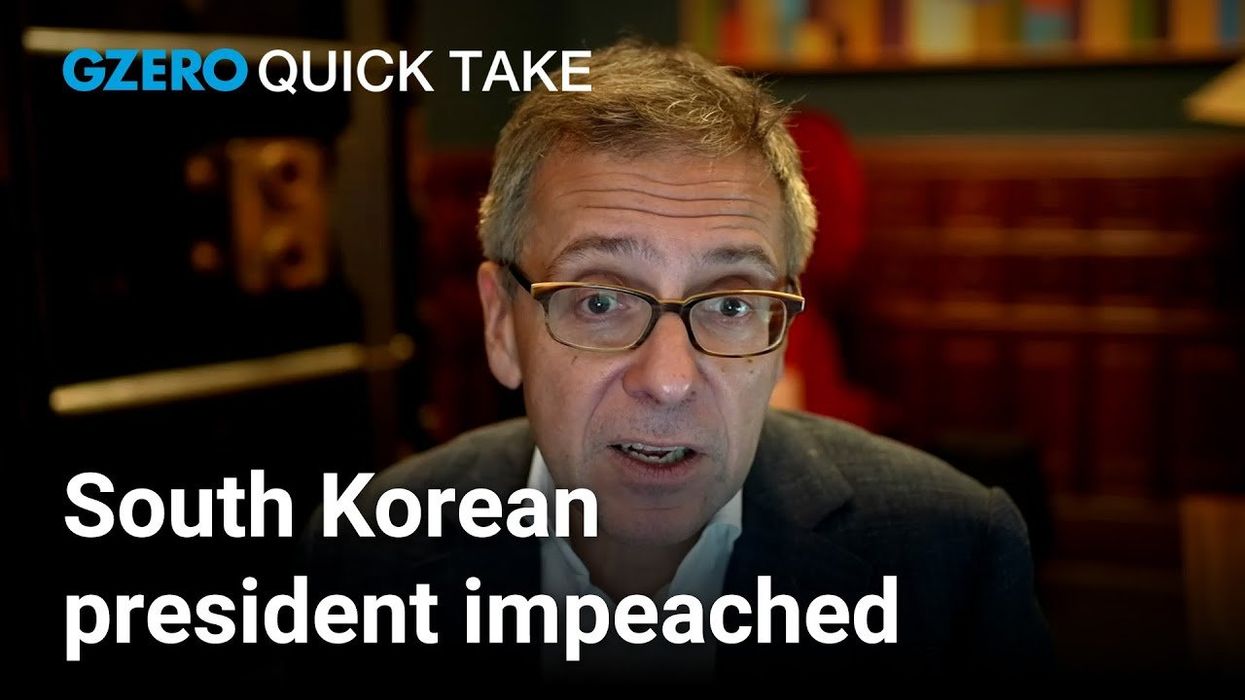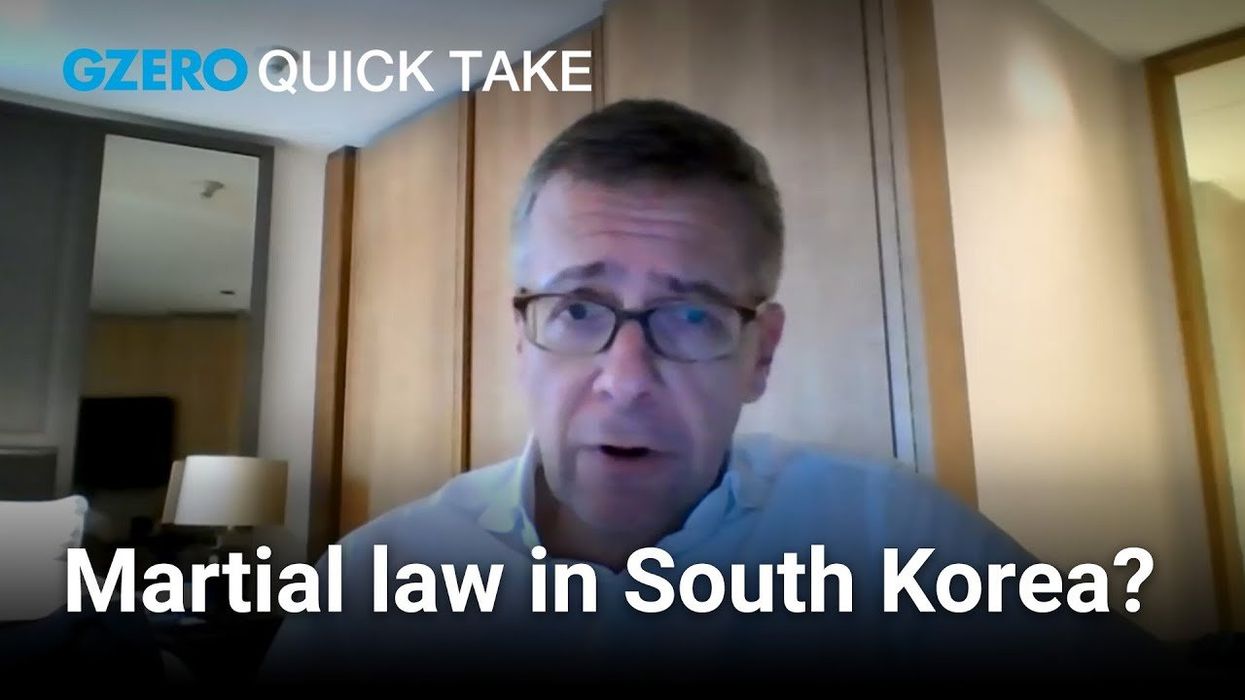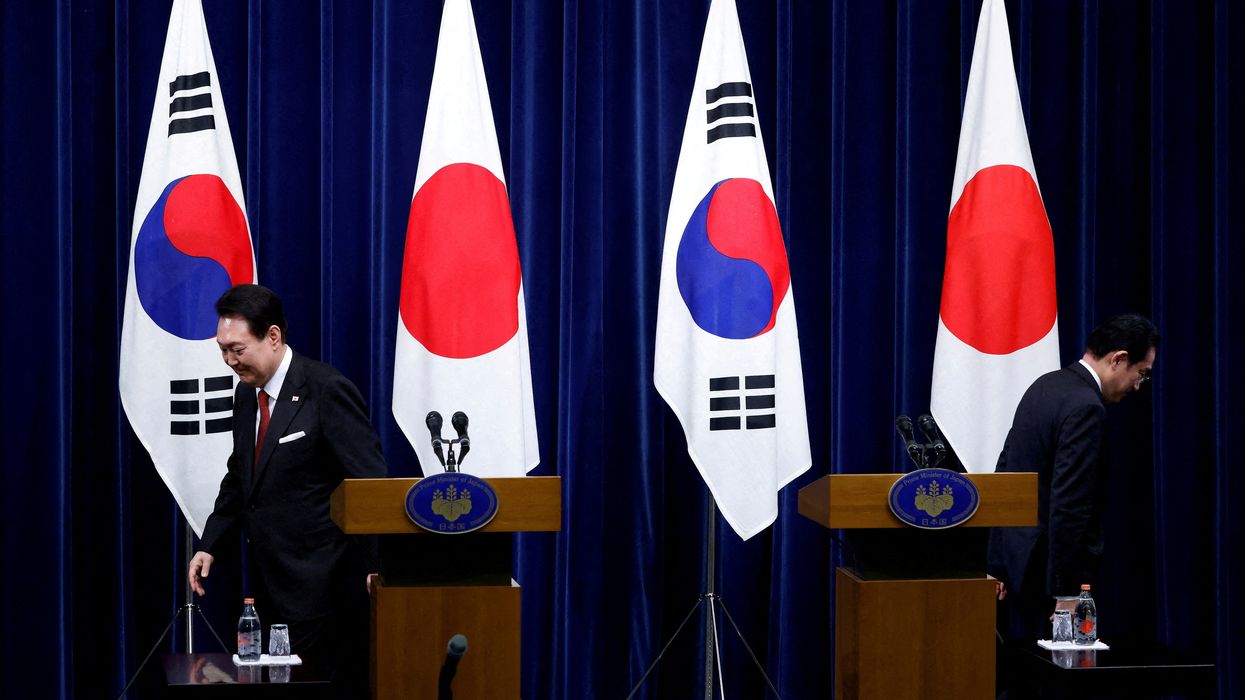Quick Take
What's next for South Korea after President Yoon's impeachment?
Ian Bremmer's Quick Take: South Korea faces uncertainty as it transitions into a caretaker government after President Yoon Suk Yeol's impeachment. In this Quick Take, Ian Bremmer discusses the implications for the country's global alliances and what's to come.
Dec 16, 2024



